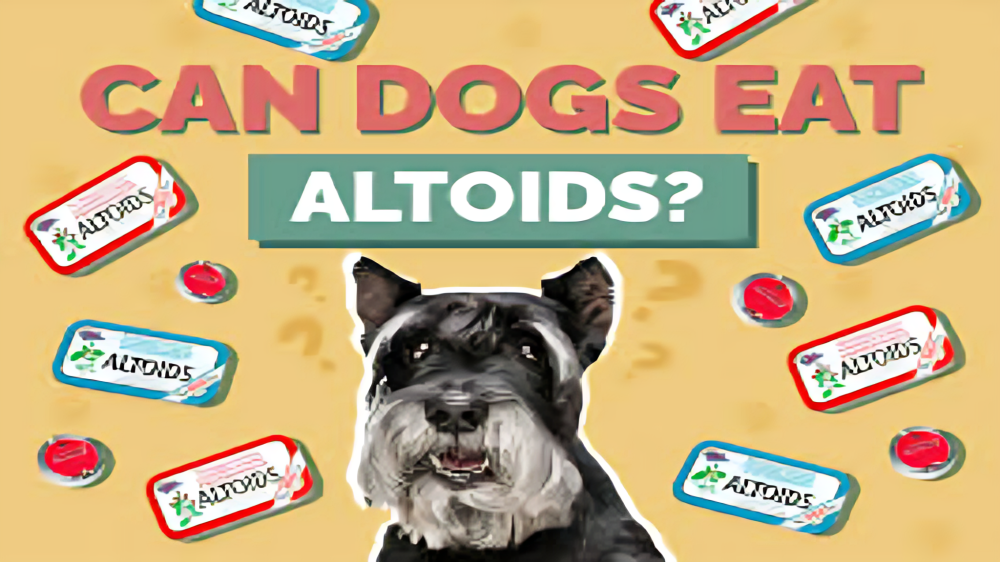Altoids’ well-known breath mints are renowned for their striking tin packaging and intense flavor. Many people adore these mints and always have them in their purses or homes because of their cooling qualities. But dogs should not eat Altoids. Altoids are harmful to dogs as they contain the highly toxic sweetener xylitol, which can result in liver failure, seizures, and hypoglycemia in dogs. Pet access to Altoids and related products must be restricted. Learn more about safe food choices and risks associated with human foods on Pets Care Insiders.
What are Altoids?
The Wrigley Company, a current subsidiary of Mars, Inc., manufactures the tiny, sugar-free breath mints known as Altoids. They come in various flavors, such as peppermint, spearmint, and wintergreen, and are known for their strong taste and long-lasting freshness. Altoids are typically stored in a tin container, which is easily recognizable.
The Danger of Xylitol
The main issue with sugar-free mints like Altoids is the amount of xylitol, a sugar alcohol used as a sweetener. Sugar-free gum, candies, toothpaste, and other dental products frequently contain xylitol. Is altoids harmful to dogs, as it is safe for humans to ingest and is popular because it has fewer calories than sugar and doesn’t raise blood sugar levels.
However, xylitol is highly toxic to dogs. Dogs that ingest xylitol may experience a dangerous reduction in blood sugar levels (hypoglycemia) as a result of the pancreas releasing insulin more quickly. Dogs may experience weakness, lethargy, vomiting, tremors, seizures, and even coma as a result of xylitol poisoning, which can happen in 10 to 60 minutes.
Xylitol Toxicity for altoids harmful to dogs
Hypoglycemia can occur with even tiny doses of xylitol in dogs. The Animal Poison Control Center of the ASPCA states that dogs’ blood sugar levels can drop sharply and quickly at a rate of one kilogram of body weight or as little as 0.1 grams of xylitol. Higher xylitol consumption can result in acute liver failure that is fatal.
What to Do if Your Dog Ingests Altoids
If you suspect your dog has consumed any xylitol-containing product, such as Altoids, you must immediately act. Even if your dog has no symptoms, contact your veterinarian or an emergency veterinary clinic immediately. Acting quickly to prevent serious health complications is critical, and immediate veterinary care is required.
Your dog’s veterinarian might make him throw up to eliminate the last of the Altoids, or he might give him activated charcoal to help absorb any leftover xylitol in his digestive system. Additionally, they might administer intravenous fluids to maintain your dog’s blood sugar levels and monitor his liver.
Preventing Dogs from Dying from Xylitol Poisoning from Altoids
Prevention is the best approach when it comes to xylitol poisoning in dogs. For your dog’s safety, consider the following advice:
- Read Labels: Before purchasing any sugar-free items, such as baked goods, gum, mints, or peanut butter, make sure to look up the ingredient list. Oral hygiene products and certain medications also contain xylitol.
- Keep Products Out of Reach: Store all sugar-free products, including Altoids, securely out of your dog’s reach. Dogs are curious and may be attracted to the scent or taste of these products.
- Educate Others: Ensure that everyone in your household and anyone who cares for your dog (such as dog sitters or family members) understands the dangers of xylitol and knows not to give these products to your dog.
- Alternative Treats: If you want to freshen your dog’s breath or treat them, choose products specifically formulated for dogs. Some dog-safe dental treats and chews can help maintain your dog’s oral health without the risk of xylitol poisoning.
Conclusion
While altoids and similar mints are safe for human consumption, they can be extremely dangerous for dogs due to their xylitol content. Xylitol toxicity can lead to severe and life-threatening health complications, including hypoglycemia and liver failure. Be vigilant and take precautions to prevent your dog from accessing products containing xylitol, including alkaloids.
